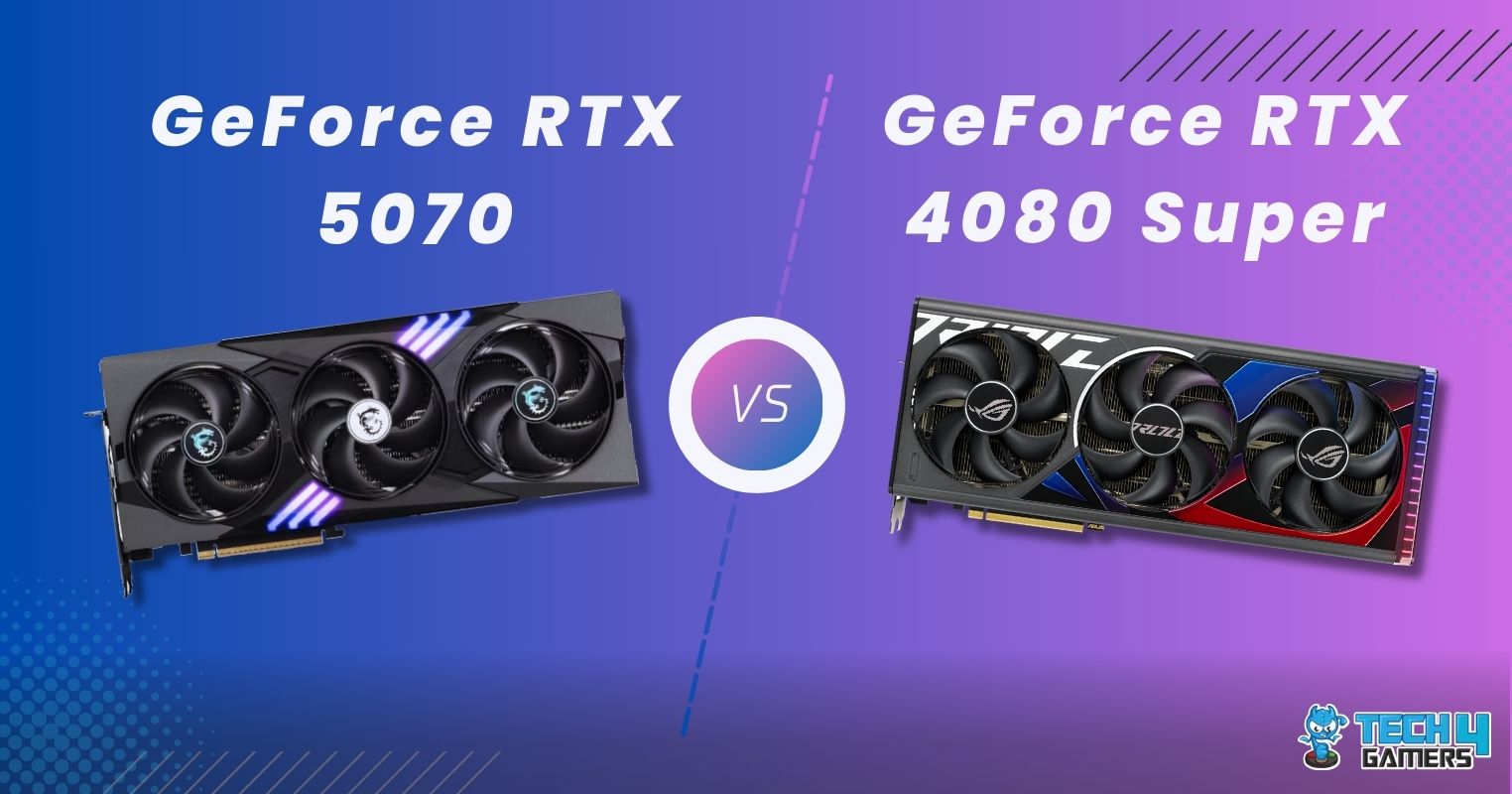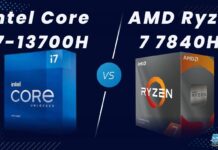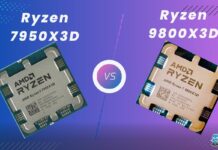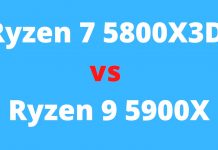Embark on an exciting journey into the realm of high-performance processors as we explore the showdown between the exceptional Apple M2 Pro vs Apple M1 Pro. This head-to-head comparison delves into the intricate details of their specifications and technological advancements, unraveling the true potential of these chips.
Key Takeaways
- The M2 Pro impressively outperformed the M1 Pro in multiple benchmarks, with significant performance advantages of an average of 8.6% in single-core tests and 18.9% in multi-core tests
- With notable improvements in video transcoding, video editing, image upscaling, and photo editing, the M2 Pro offers unparalleled speed and precision for creative endeavors.
- Utilizing the better Apple M2 Pro GPU (19-core) and improved CPU core speeds from (2.4 GHz to 3.5 GHz), the M2 Pro excels in video rendering and multitasking, providing a smoother computing experience.
- With enhanced capabilities, the M2 Pro emerges as the superior option for users seeking better performance, while the M1 Pro remains suitable for everyday needs and budget considerations.
Comparison Table
| Key Specifications | M1 Pro | M2 Pro |
|---|---|---|
| Vendor | Apple | Apple |
| Release Date | October 18, 2021 | January 17, 2023 |
| Device Type | Laptop | Laptop |
| Instruction Set | ARMv8 | ARMv8 |
| Integrated GPU | Apple M1 Pro GPU (16-core) | Apple M2 Pro GPU (19-core) |
| Performance Cores | 8 | 8 |
| Performance Threads | 8 | 8 |
| Base Clock (Performance) | 3.2 GHz | 3.5 GHz |
| Base Clock (Efficiency) | 2.1 GHz | 2.4 GHz |
| Total Cores | 10 | 8 |
| Total Threads | 10 | 8 |
| L1 Cache | 192K (per core) | 192K (per core) |
| L2 Cache | 24MB (shared) | 32MB (shared) |
| Transistors | 33.7 billions | 40 billion |
| Fabrication Process | 5nm | 5nm |
| TDP (PL1) | 30W | 30W |
| Socket | Apple M-Socket | Apple M-Socket |
| GPU Base Clock | 450 MHz | 450 MHz |
| GPU Boost Clock | 1296 MHz | 1398 MHz |
| Cuda Cores | 2048 | 2432 |
| Display Capabilities | 6016×3384 – 60 Hz | 7680×4320 – 60 Hz |
| Memory Support | Up to 32GB LPDDR5-6400 | Up to 32GB LPDDR5-6400 |
| ECC Support | No | No |
| PCI Express Version | – | 4.0 |
Architectural Differences
- Process Node: Leveraging the latest technological strides, both the M1 Pro and M2 Pro exemplify innovation by adopting an advanced 5nm fabrication process as the cornerstone of their performance.
- Clock Speed: Pushing the boundaries of speed, the M2 Pro stands at the forefront with an impressive 2.4 GHz base clock and a remarkable boost clock of up to 3.5 GHz. Meanwhile, the M1 Pro delivers commendable performance with a base clock of 2.1 GHz and a boost clock of up to 3.2 GHz.
- Memory Support Variation: Unleashing their memory prowess, both the M1 Pro and M2 Pro are equipped to handle up to 32GB LPDDR5-6400 memory, ensuring seamless multitasking and efficient operation even with resource-intensive applications.
- TDP: Balancing thermal considerations, both the M1 Pro and M2 Pro exhibit a similar thermal design power (TDP) of 30W, striking a harmonious blend of performance and energy efficiency.
- Supported Technologies: Introducing enhancements for users, the M2 Pro stands out by providing support for PCIE 4.0, enabling faster data transfer speeds, improved graphics performance
Apple M2 Pro Vs Apple M1 Pro: Performance Benchmarks
Let’s delve into the real-world results and explore the performance benchmarks of the M2 Pro and its predecessor. Discover how these chips stack up against each other and uncover the true potential of their capabilities.
Let’s get started.
Cinebench R23 (Single-Core)
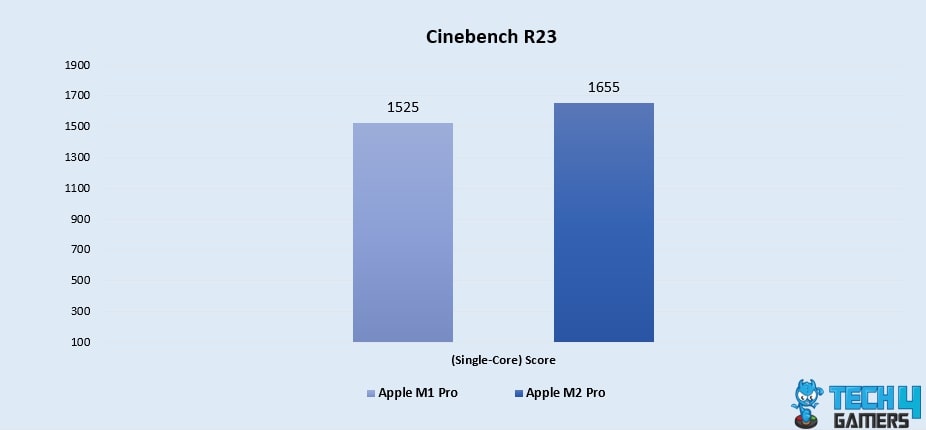
- In the Cinebench R23 Single-Core benchmark, the M2 Pro showcased an impressive 8% performance boost compared to the M1 Pro, scoring 1655 versus 1525.
Cinebench R23 (Multi-Core)
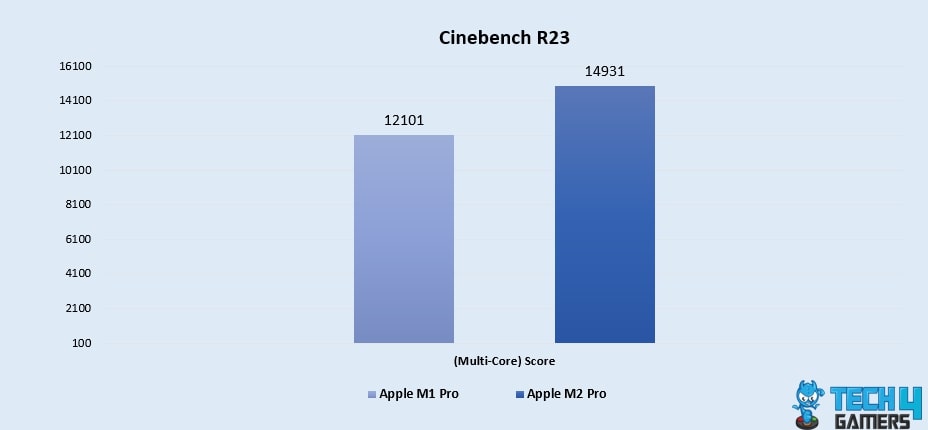
- Moving to the Cinebench R23 Multi-Core benchmark, the M2 Pro surged ahead with a remarkable 23% performance advantage, scoring 14931, while the M1 Pro scored 12101.
Passmark CPU (Single-Core)
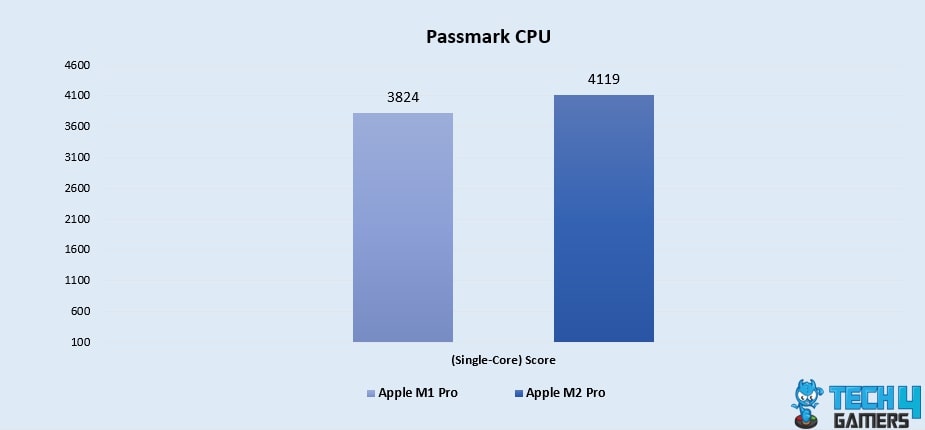
- The Passmark CPU Single-Core test revealed an 8% performance gain for the M2 Pro, achieving a score of 4119 compared to the M1 Pro’s score of 3824.
Passmark CPU (Multi-Core)
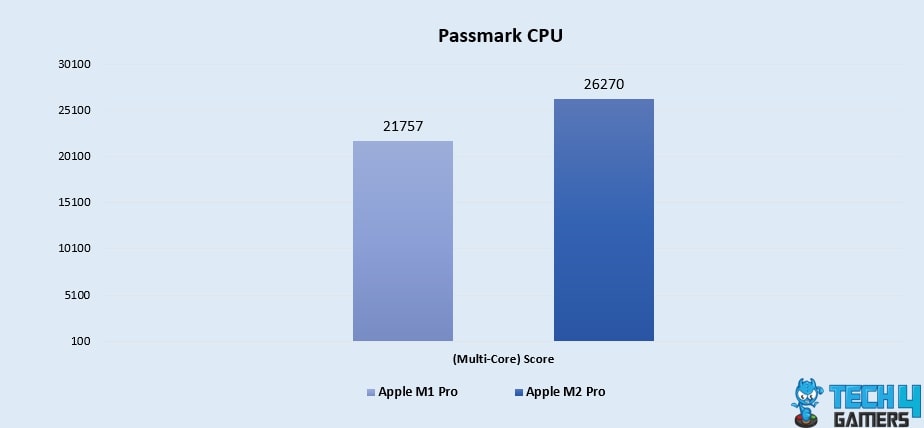
- Stepping into the Passmark CPU Multi-Core benchmark, the M2 Pro dominated with a significant 21% performance lead, scoring 26270 compared to the M1 Pro’s score of 21757.
Geekbench 5 (Single-Core)
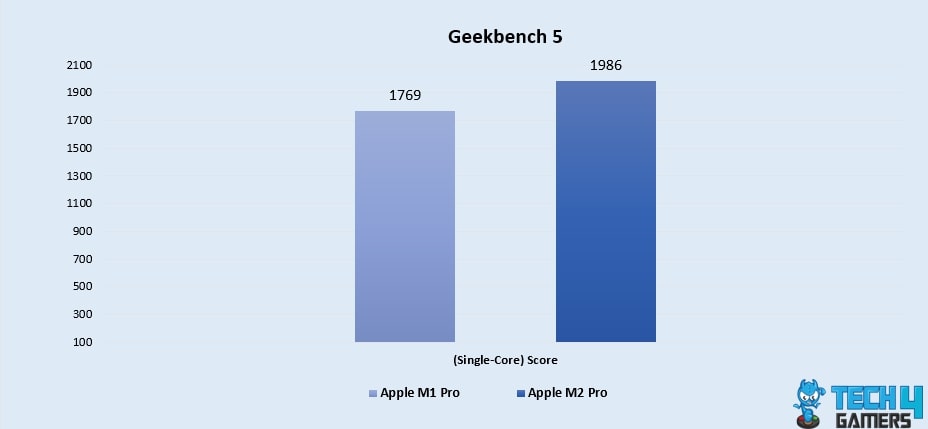
- In addition, the Geekbench 5 Single-Core benchmark highlighted a 12% performance increase for the M2 Pro, scoring 1986 compared to the M1 Pro’s score of 1769.
Geekbench 5 (Multi-Core)
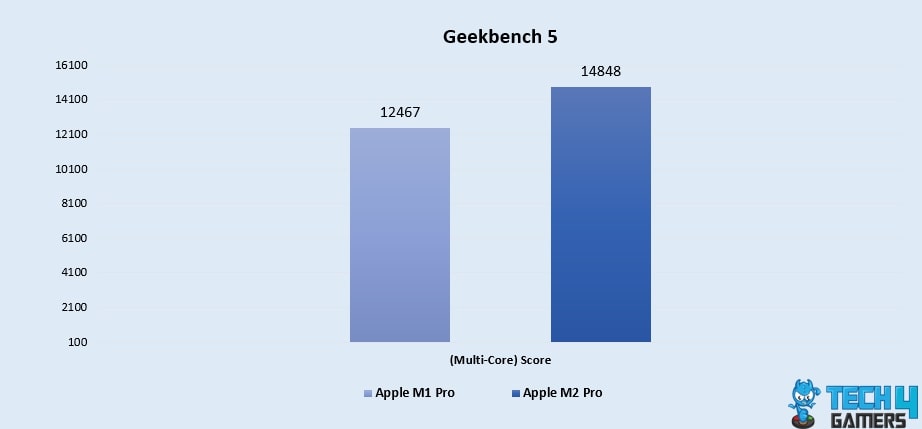
- Finally, in the Geekbench 5 Multi-Core benchmark, the M2 Pro demonstrated its superiority once again, achieving a 19% performance advantage with a score of 14848, while the M1 Pro scored 12467.
Apple M1 Pro Vs Apple M2 Pro: Final Thoughts
- The M2 Pro surpasses the M1 Pro in various performance benchmarks, showcasing significant performance gains. From Cinebench R23 to Passmark CPU and Geekbench 5, the M2 Pro consistently delivers higher scores, translating into faster and more efficient computing experiences.
- Regarding creative tasks, the M2 Pro excels with its superior capabilities. With impressive gains in video transcoding, video editing, image upscaling, and photo editing, the M2 Pro outshines its predecessor.
- Moreover, with a higher GPU count and improved CPU core configurations, the M2 Pro presents itself as a powerhouse chip ready to handle intensive tasks. The M2 Pro’s advanced architecture provides a clear advantage.
- Considering the significant performance improvements and capabilities, the M2 Pro is the superior choice for users seeking top-notch performance. However, for users with less demanding workloads or budget constraints, the M1 Pro still offers solid performance.
Thank you! Please share your positive feedback. 🔋
How could we improve this post? Please Help us. 😔
[Comparisons Expert]
Shehryar Khan, a seasoned PC hardware expert, brings over three years of extensive experience and a deep passion for the world of technology. With a love for building PCs and a genuine enthusiasm for exploring the latest advancements in components, his expertise shines through his work and dedication towards this field. Currently, Shehryar is rocking a custom loop setup for his built.
Get In Touch: shehryar@tech4gamers.com


 Threads
Threads